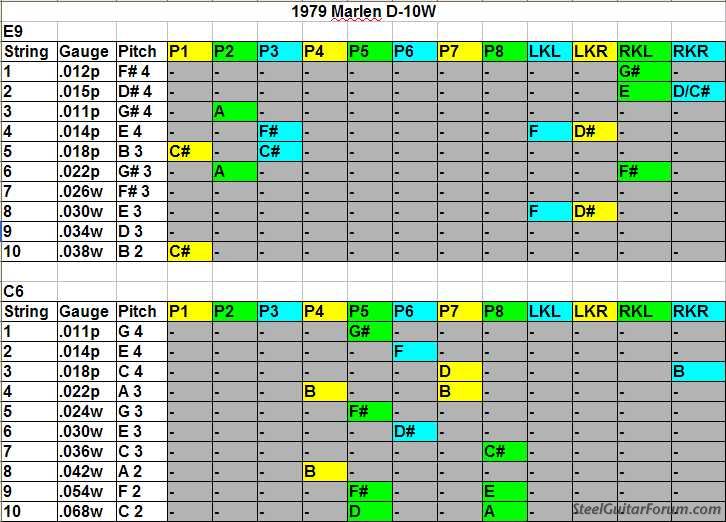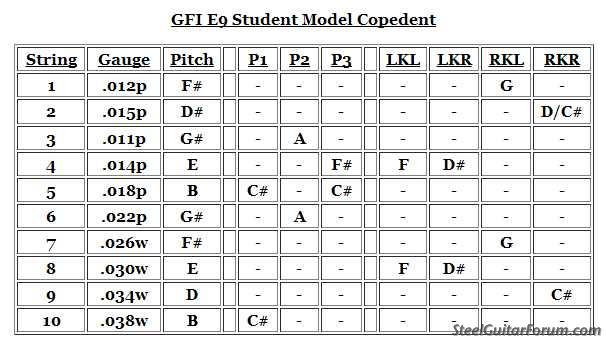Page 2 of 2
Posted: 9 May 2015 2:00 am
by Charlie McDonald
I've been curious as well about how pull/release works, having heard good things about its tone.
Posted: 9 May 2015 3:45 am
by Scott Duckworth
Charlie, I like pull release. It's a simple system, easy to work with. Easy to tune. And does have great tone. You can't do some of the more exotic changes that other guitars do, as the fingers are "raise" only, in that they are one solid piece, not the double jointed fingers that have raise and lowers. The raise happens as a pull, and lower happens as a "release" from a strings tuned position, and goes back to "rest" against the tuning nut or body of the guitar.
I've had a Marlen and now a GFI, both are pull release, and like both of them.
Here is the copedent of both for comparison.


Note that my GFI does not have the RKL.
Posted: 9 May 2015 4:42 am
by Charlie McDonald
Thanks Scott. I grasp the single vs. double-jointed finger.
I also should have studied my Red Baron more (not really,
not great tone).
Does the fact that the finger comes to rest against the body account for the alledged tone?
So it will do E and G# lowers, but probably wouldn't do a split, like G#/F#/G?
I hope things are going fine with testing and you feel well.
Posted: 9 May 2015 4:49 am
by Charlie McDonald
Here is a previous discussion with Richard Burton's animated action diagram and several pictures of mechanisms
and description of the mechanism by Ned McIntosh.
http://bb.steelguitarforum.com/viewtopi ... 3a4c0362ac
If you look at the animation long enough, it appears quite simple, like 'of course.'
Posted: 9 May 2015 5:26 am
by Scott Duckworth
Charlie, some folks have accomplished some other changes using reverses, etc, but it takes a lot of thought.
And not all fingers rest against the body. Some rest against the tuning nut. But I do believe that has to do with the great sound. I do know my Marlen had a deeper, fuller sound than my GFI, simple because there was a lot more body mass.
Posted: 9 May 2015 8:49 am
by chris ivey
i just had a thought. maybe the positive tone aspects of push pulls and pull release changers comes from the physical aspect of the changer fingers. these both have thicker fingers than the all pull design which incorporates a lighter thinner metal design.
Posted: 10 May 2015 10:02 am
by Alan Brookes
Roger Shackelton wrote:I believe Buddy Emmons stated once in an interview that he would have liked to play a D-10 string PSG with 3/8 string spacing.
It was Buddy Emmons who created the narrower spacing. When he added the extra strings to the E9 tuning he kept using the same fingerboard stock, because Sho-Bud was set up to produce one size of body and it would have been more expensive to retool. If you use the "Search" function you'll find where he tells the whole story of that.

